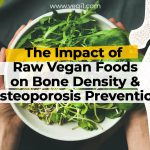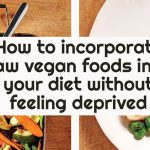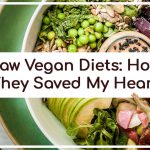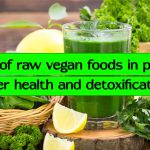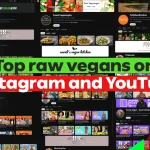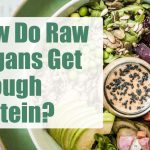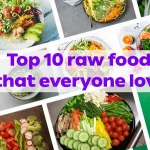Can raw vegans eat peanut butter?
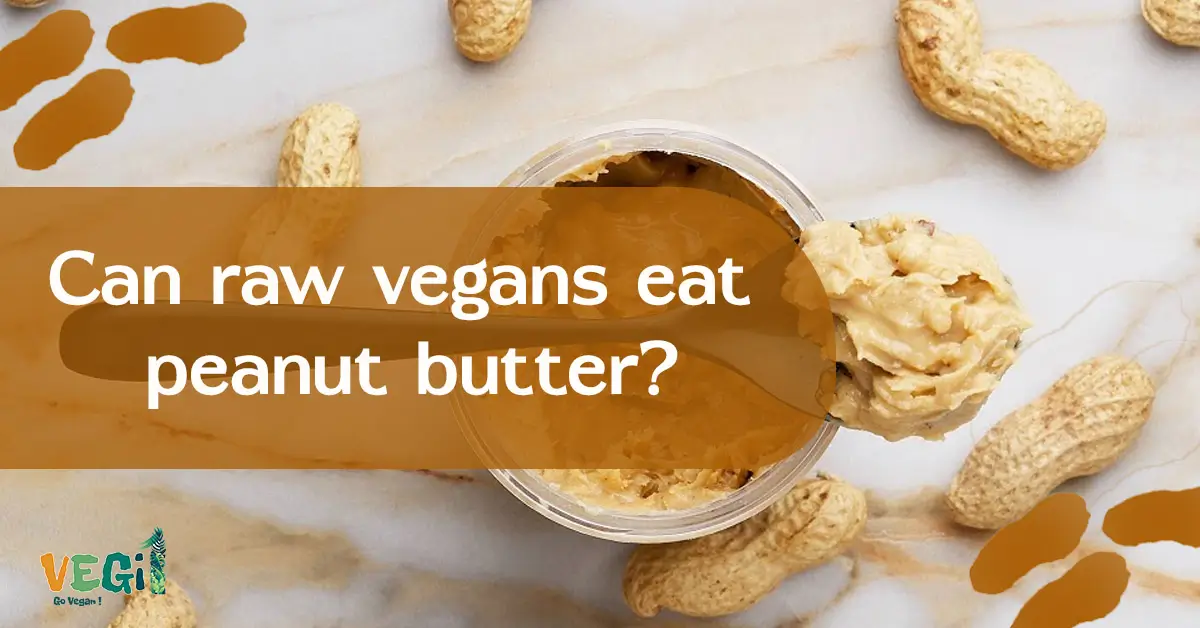
Both raw and roasted nuts are good for you and provide health benefits. Both varieties contain similar amounts of calories, protein, carbs and fiber. However, roasting nuts may damage their healthy fat, reduce their nutrient content and lead to the formation of a harmful substance called acrylamide. But the fact is that you can have peanut butter on your raw vegan diet, and it is actually healthy, but it must be homemade or at least contain raw nuts and not the roasted kind, Also should be unprocessed and without preservatives. You can find raw peanut butter in most natural food stores, and if you’re seeking a handmade recipe, we’re going to discuss that, too, which is pretty easy to make.
In this article you will read:
Peanut butter on a raw vegan diet
In case you have no idea about a raw vegan diet, it contains mostly uncooked plant-based meals, which include nuts, seeds, vegetables, and fruits. Animal products are all-limits on this diet and the foods you are consuming shouldn’t be cooked or heated above 118 degrees F. What you should avoid in this raw vegan diet is cooked fruits, vegetables, meats and grains. And also refined sugars and flour, roasted nuts and seeds, refined oil, and pasteurized products such as juices and dairy. So, we’re going to discuss peanut butter.
Raw nuts are a fundamental part of a raw vegan diet because they provide proteins and vitamins, and they are high in dietary fiber and also healthy fats. But honestly, peanuts are not classified in this category. Commercial peanut butter is made with roasted peanuts, even natural and organic ones. That means peanut butter is not a raw food, so if you’re on a strict raw vegan diet, you may have to consume raw peanut butter, or you can even make it yourself.
Vegans can have it in their diet, but a raw vegan should consume unprocessed, organic or homemade peanut butter.
Roasting peanuts brings some changes in peanuts’ nutritional profile and also, they are associated with high levels of sodium which health professionals have linked to heart disease.
How do Vegetarians Get Protein?
Commercial peanut butter processing
Peanut butter must contain at least 90% peanuts; the other 10% is a space for other ingredients. Salt is the most common part of peanut butter, at least a pinch of it. But you can find salt-free options if you’re concerned about the amount of sodium in your diet. Some brands favor pure cane sugar, others lean towards maple syrup, and yet others embrace sugar-free alternatives such as monk fruit or stevia. Honey is another common ingredient that can make peanut butter not vegan. To have a smooth and soft butter, oils are frequently added during the process. These were the common ingredients that we discussed. Now, here’s the actual process!
Dry Roasting is a process by which heat is applied to dry foodstuffs without the use of oil or water as a carrier. In the course of roasting, the peanuts travel through a hot air roaster in a continuous rocking motion. This motion allows the nuts to roast smoothly. After this process, the color of the peanuts changes from white to light brown. Peanuts have to be cooled to stop the cooking process. This will help the peanuts to retain moisture and oil, preventing them from drying out. Then we go up to the blanching process which removes the remaining outer skins of peanuts that still remain after roasting. In this process, the kernels are split in two, and the hearts of peanuts are removed because of their bitter taste. After blanching, a grinder grinds the peanuts into a paste while blending other ingredients. In order to make a fine and smooth butter texture, they use a very high-speed comminutor.
Then will start the packaging process.
Ingredients
- Roasted peanut
- Salt
- Hydrogenated oil
- Dextrose
- Sugar
- Malto dextrin
- Monoglycerides
- Corn syrup solids
- Honey
- Lecithin
What makes peanut butter not vegan?
The majority of peanut butter is vegan-friendly and can be included in a raw vegan diet. But, certain types may be produced in facilities that also handle animal products or contain non-vegan ingredients like refined sugar processed using bone char, honey, or fish oil.
Some commercial raw peanut butter blends are not vegan
-
Roasted peanuts
You should obviously avoid roasted peanuts on your raw vegan diet. If you have to make a choice, go for the raw ones, as they are a little healthier than roasted peanuts. The roasting process may cause some changes in the nutrition.
-
Salt
Not all brands use the same ingredients, but if they use table salt in their peanut butter, you may have to avoid that on your raw food diet. Table salt is not permitted on a raw food diet, but Himalayan salt, Celtic sea salt, and other seasonings are allowed.
-
Hydrogenated oil
Some hydrogenated vegetable oils are okay for vegans because they come from plants. But some may have animal fats or unhealthy trans fats, which isn’t good for both ethical and health reasons. Raw vegans totally stay away from these oils, while others choose to use alternatives such as cold-pressed olive oil, raw coconut oil, raw flaxseed oil, and raw hemp oil.
-
Sugar
Sugar can be used to sweeten peanut butter, it doesn’t include any animal products and it’s totally vegan. However, some sugar is processed with bone char, which is an animal ingredient.
-
Honey
Honey is not vegan because it is a product that came from a living being, honeybees. Like milk and eggs, they fall into the same category as non-vegan food products.
-
Preservatives
Even though a plant-based diet may sound appealing, it’s important to read labels on prepackaged foods. If you don’t, you may end up consuming additives, preservatives, and other unknown ingredients that could ruin the health benefits of being vegan. Be cautious when it comes to mystery ingredients!
How Often Should Vegans Eat Nuts? A Comprehensive Guide
What are the types of peanuts?
We have four kinds of peanuts: Spanish, Virginia, Runner, and Valencia. Runner peanuts are often used in peanut butter and roasted snacks because of their great taste and easy roasting. Spanish peanuts are usually used in peanut candy but can also be enjoyed in cooking and baking. Raw Spanish peanuts have a higher oil content than other types. Valencia peanuts are commonly used for natural peanut butter and are a good choice for making boiled peanuts. Virginia peanuts are a wholesome addition to any diet, providing numerous health benefits such as high protein, healthy fats, and fiber.
Peanuts are such a healthy snack, and it has a lot of fans in all age groups, whether it’s in raw form, boiled, or roasted form. Peanuts are a complete package of essential vitamins and various nutritious health benefits. The highest plant-based source of protein, vitamins, fiber, and minerals is peanuts.
Raw peanuts vs roasted peanuts
Raw peanuts are the most beneficial form of peanuts among the various types. Yet, peanut butter that is made from raw peanuts also provides valuable nutrition for those watching their diet, even though roasted and salted peanuts are in demand, especially in cold weather. Eating roasted peanuts in moderate amounts is fine. But you should be aware that consuming them in higher quantities can cause high blood pressure and heart disease. If it’s possible for you, try buying raw peanuts with skin attached because they contain antioxidants that help protect the body’s cells against damage from free radicals.
Health benefits of raw peanuts:
- Raw peanuts hold a low amount of sodium and they’re cholesterol-free.
- One cup of raw peanuts contains 24 grams of carbs, 10 grams of saturated fat, 72 grams of protein, 12 grams of fiber and nearly 828 calories.
- because of their low-carb profile, raw peanuts can be effective in your weight-loss diet.
- They also contain plenty of potassium, phosphorous, magnesium, and B vitamins.
- In spite of being high in calories, peanuts are nutrient-rich and low in carbohydrates.
Negative effects of roasted peanuts:
- When peanuts are roasted at high temperatures, some of the vitamins, minerals, and antioxidants they contain can be destroyed. Heat-sensitive vitamins such as vitamin E, B6, and folic acid are reduced during the roasting process.
- The use of oil in the roasting process increases the fat and calorie content of the peanuts.
- Eating too many roasted peanuts can cause obesity and weight gain.•Roasting peanuts at high temperatures can create a dangerous substance called acrylamide, which is a cancer-causing agent that can be found in other foods as well.
- High heat can also change the protein structure in peanuts, which makes them harder to digest. So, if you have digestive issues, you’re going to have problems with roasting peanuts!
Minerals:
– Raw peanuts contain minerals ,including potassium, magnesium, phosphorus, and zinc.
– Roasted types hold these minerals, but there might be slight changes in the mineral content caused by the roasting process. For instance, roasting can act on the bioavailability of certain minerals.
Proteins:
– Both raw and roasted peanuts are great sources of plant-based proteins, including crucial amino acids.
– The roasting process doesn’t change the protein content.
Fiber:
– Raw peanuts are rich in dietary fiber, which helps with cholesterol management.
– Roasted peanuts keep their fiber content, and they have similar benefits as raw peanuts as well.
Vitamins:
– Raw peanuts contain various vitamins like vitamin E, folate, niacin, and B vitamins.
– Some vitamins, namely vitamin E, are heat-sensitive. So, the roasting process may cause a small reduction in it. But the overall vitamin content is still there.
What are the alternatives to peanut butter?
Peanut butter is such a tasty snack and, as we discussed, it is pretty healthy. However, peanuts are the most common food allergens among adults, so if you are allergic to peanuts, you might need to substitute peanut butter with other options. Here are 6 substitutes for peanut butter that will provide all the flavor without any potential harm.
Almond butter:
Almond butter is made from raw almonds. It can be with or without skins, since some brands remove them to get a smoother texture. From a nutritional perspective, both peanut butter and almond butter offer a range of health benefits but almond butter is mainly higher in vitamin E, magnesium, and fiber than peanut butter. Also, almond butter is rich in fiber.
Cashew butter:
Cashew butter has the same texture as peanut butter. It’s a good source of magnesium. It provides 20% of the Daily Value (DV) in a 2-tablespoon (32-gram) serving, and it might help adults reach the recommended DV. Cashew butter contains about half the sugar of peanut butter and it often contains less additives. Cashews are rich in protein, healthy fats, minerals, vitamins, antioxidants, and fiber.
Walnut butter:
Just like peanut butter, walnut butter has a nutty flavor. Walnut butter contains the highest level of heart-healthy omega-3 fatty acids among all nut butter. Consuming walnut butter may lower your blood cholesterol levels and improve your blood vessel function, which might cut down the risk of heart disease.
-
Nut-free butter
Tahini:
Tahini is a paste made from roasted sesame seeds. It’s generally used as a condiment in the Middle East. Tahini is nutritionally similar to peanut butter. Sesame is a significant source of crucial nutrients fiber, vitamins B1, B2, B3, calcium, selenium and zinc. Tahini is high in monounsaturated and polyunsaturated fats. Consuming these types of fats can lower harmful cholesterol levels.
Sunflower seed butter:
Just one tablespoon of sunflower seed butter provides nearly a quarter of your body’s daily requirement for vitamin E. They’re naturally rich in omega-6 fatty acids and chlorogenic acid. It’s a great alternative to peanut butter for savory recipes such as dressings and sauces.
Granola butter:
Granola butter is a nut- and gluten-free spread made mainly of humble oats. Granola Butter offers many health benefits. The combination of nuts and seeds supplies heart-healthy fats and antioxidants that promote cardiovascular health. It is high in fiber. Granola butter is a great choice for sweet sauces and dressings, or as a topping for your oatmeal.
You can even make your own cashew butter or almond butter with your food processor only! If there is any leftover, you can store it in a sealed container in the refrigerator for up to 3 days. You can use it as a topping for salads or create raw vegan snacks with it.
How to make homemade peanut butter for raw vegans?
If you want to make your own vegan peanut butter, then don’t waste your time on markets finding vegan and organic ones. I have an easy recipe for you. This peanut butter recipe calls for just 1 or 2 ingredients, and it comes together in under 10 minutes! Ready to learn how to make peanut butter?
Ingredients:
- 2 cups raw peanuts
- 1 or 2 teaspoons of salt (it’s up to you if you like saltier peanut butter)
- 1 tablespoon liquid sweetener like maple syrup, agave, granulated sugar, optional
Equipment:
- Food processor
Instructions:
- Add the raw peanuts to the bowl of a food processor, and begin processing until they become very smooth. You’ll need to pause to scrape down the sides of the bowl every 30 seconds or so. At first, it might look like they didn’t blend into a smooth nut butter, but trust the process! There will be no need to add vegetable oil or stuff. They’ll be chunky at the beginning.
- Add a pinch of salt (optional) and sweetener.
- Finally you’ll have peanut butter with the most naturally creamy texture, with a barely sweet flavor.
- Store it in an airtight container or jar at room temperature or in the refrigerator for up to 1 month and enjoy your homemade peanut butter!
- Nutrition:
- Calories: 141kcal
- Carbohydrates: 4g
- Protein: 7g
- Fat: 12g
- Saturated Fat: 2g
- Polyunsaturated Fat: 4g
- Monounsaturated Fat: 5g
- Calcium: 24mg
- Potassium: 189mg
- Sodium: 105mg
- Fiber: 2g
- Iron: 1mg
Homemade raw peanut butter sauce recipe
Here’s a quick peanut sauce recipe for your salads and snacks:
Ingredients
- ½ cup creamy peanut butter
- ½ cup water
- 1 tablespoon of reduced-sodium soy sauce
- 1 tablespoon finely grated peeled fresh ginger
- 1 teaspoon brown sugar
- 1 teaspoon minced garlic
- 1 teaspoon unseasoned rice vinegar
You’ll need to combine peanut butter, water, soy sauce, ginger, brown sugar, minced garlic and vinegar in a bowl, stirring with a whisk until smooth. It takes 10 minutes to get ready. You can use it as a dipping sauce for spring rolls or summer rolls or as a salad dressing, drizzle it over a kale salad, simple green salad, or slaw. Over roasted veggies. As a dip Scoop it up with carrots or peppers and enjoy!
Which brands of peanut butter are raw vegan?
You can find this item on Amazon and organic markets. The flavor name is organic creamy peanut butter and it contains organic raw peanuts. No sugar and salt are added to this butter, and it can be a good item for you.
The form of this item is powder and it is definitely organic. The ingredients are organic cinnamon. It’s available on the Amazon website and you can also find it in natural stores.
This one is Gluten free and the ingredients are: raw peanuts, Planty honey, organic cane sugar, peanut il, palm oil, and sea salt there is no artificial ingredients in it.
This item is Gluten free same as the previous one, the ingredients are raw peanuts and palm oil. Item form is creamy.
This item is made with lightly, organically grown sesame seeds that are milled creamy.It is salt free, unsweetened, and gluten free. It only contains sesame seeds!
This natural nut butter is keto-friendly, gluten-free, vegan, and kosher. There is no sugar added and there is no palm oils in it.
The end
In this article, we discussed if raw vegans can consume peanut butter. I tried to provide you with sufficient information about commercial peanut butter and homemade peanut butter from reliable sources. You can easily make peanut butter or any nut butter at home using tutorials, and rest assured that it is healthier and tastier that way. After making peanut butter, you can use it as a dressing for salads or as a topping for raw vegan cookies. If you have any feedback on this article, please comment and let me know. I tried to introduce peanut butter brands suitable for raw vegans. Do you know any brands that are not listed here? Please write their names in the comments and let us know!


